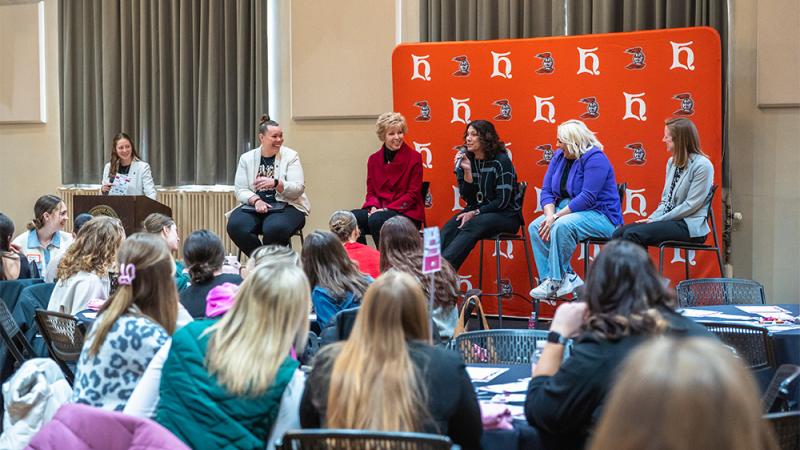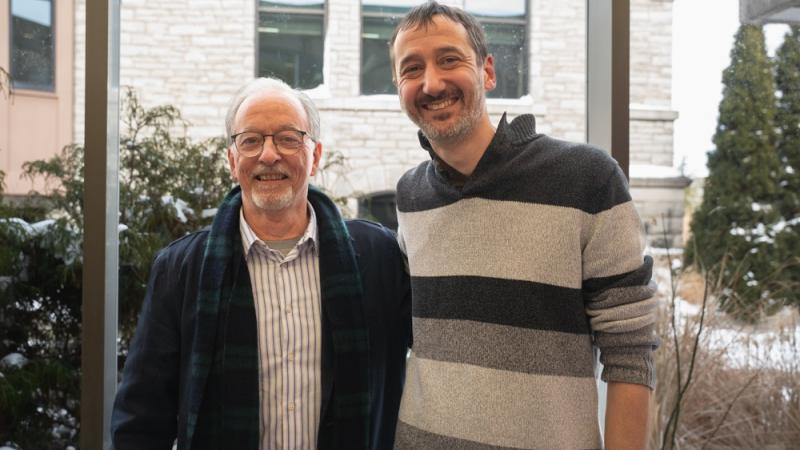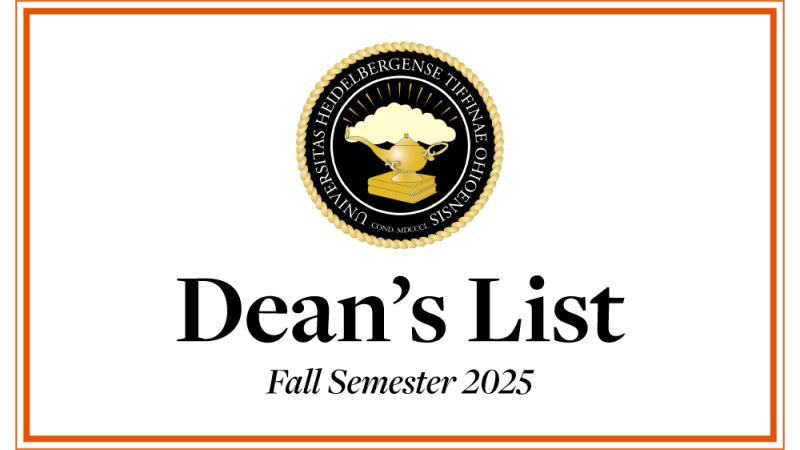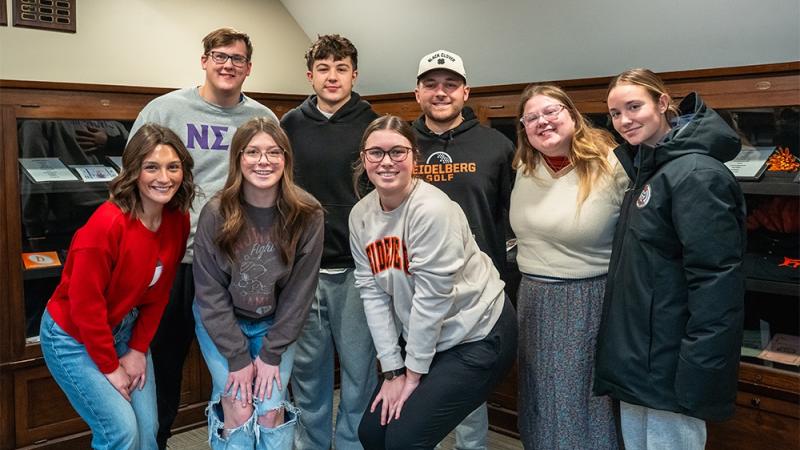Research helps biochem majors clarify career paths
There’s nothing better than real-life experiences to help students to understand what their careers will be like post-graduation. Four biochemistry students recently who completed prestigious summer Research Experiences for Undergraduates (REU) through the National Science Foundation discovered exactly what they were looking for.
Crimson Stuckert: Duquesne University
Crimson, a sophomore, was offered a position in a lab focusing on both infectious diseases and neurological conditions, which are her two main research interests. Along the way, she found a friend and mentor who could really relate to her position as an undergrad researcher. Alumnus Caleb Frye ’20 – a third-year Ph.D. student in chemistry and biochemistry at Duquesne whose research specialization is in the biochemistry of infectious diseases – was a huge help to Crimson.
“I was surprised by Caleb’s willingness to help me achieve success both in the lab and in my biochemical studies as a whole,” she says. “I am extremely grateful for his dedication to my studies, as he was once in my shoes here at the Berg.”
Crimson’s research project, in layman’s terms, focused on the structural components of the SARS-CoV-2 mutation effects on recombination and viral reproduction. She explains, “I spent most of my time reading peer-reviewed papers regarding my research area and working in the lab gathering data. I ran one or two gels per day following sample preparation for processes like restriction/digestion, linearization, transcription and purification. I also worked with many centrifuge apparatuses to separate DNA from protein/lipids.”
Every two weeks, she presented her research in preparation for a final poster symposium.
Overall, the REU experience was “fantastic” and helped Crimson narrow the focus of her eventual career in biochemistry research.
“Before this experience, I had a short list of research interests in biochemistry and was unsure of exactly what type of biochemistry research I was most passionate about,” she says. “Now, I know that I want to pursue research in infectious diseases.” That focus will help her determine which graduate schools to target.
Macray Metz: Miami University
In addition to experience in a large lab, junior Mac Metz also gained clarity on another important issue during his REU: whether or not he wants to go to grad school.
The decision: He does.
Mac’s research focused on the Twin Arginine Transport System, or TAT. The goal was to find this TAT system within cyanobacteria.
One daily activity included a buoyant density centrifugation process to the cells. “This means that I set a density gradient via sucrose and subjected the cells to that sucrose gradient,” he explains. He also grew cells and examined them to ensure their viability and maximum growth capacity.
Mac’s lab experience overall was fantastic, and he especially appreciated the camaraderie of the other REU students and the way they all assisted one another. And the best part? Proving their hypothesis.
Oftentimes, the students were required to work independently in the lab, and this skill, Mac believes, will serve him well going forward with his remaining undergrad studies and graduate school.
“At Heidelberg, we do work independently, but there is someone to guide you. That was not the case at Miami,” he says. “I was thrust into the lab and had to gain my own sense of independence and confidence in my lab skills.”
Mac has his sights set on a Ph.D. program in biochemistry with a focus on food science. Ultimately, he’d like to work for the FDA “to be able to educate people about the consequences of food” and “create a more sustainable production of food that would not go to waste as a food crisis is happening across the world.”
Cameron Bennett: Kent State University
Senior Cameron Bennett was looking to learn what it’s like to do research and present those findings, as well as make connections with other scientists and future scientists at his REU. Mission accomplished.
At KSU, Cameron’s research was focused on synthesizing and 3D printing liquid crystal elastomers. He spent approximately 40 hours a week in the lab, working with the Advanced Materials and Liquid Crystal Institute.
“I gained a lot of experience within the lab and learned a lot about graduate programs,” Cameron says. “I was always super excited to get up and spend time in the lab because there was always something new to learn and do.”
In addition to his overarching goals, he gained knowledge on “how long it actually takes to do research, compile your data and report on it.” Plans sometimes change due to time constraints, as was the case with his KSU research.
Cameron went into the REU feeling confident in his lab skills. “I was able to work independently and understand how to do the procedures to progress to current research,” he says.
Following the REU, Cameron says he has a newfound appreciation for those who conduct scientific research for a living. “It does take a lot of time to research new things and communicate the information that you find,” he says. “I mainly just improved a lot of practical skills within the lab.”
Nathaniel Kunzler: Kent State University
Like his ‘Berg peers, Nathaniel went into his REU experience to help him decide whether to apply to physician assistant school after graduation. He kept an open mind throughout the 10-week experience.
Nathaniel’s research focused on synthesizing a photopolymerizable bio-ink and 3D printing the material into micro-needles to be tested for degradability, and mechanical properties, with the future goal in mind for drug delivery.
With gloves and goggles on, he examined the synthesis procedure on the task he completed the previous day, journaled the outcome, set goals for the current day and got to work. Some of the work involved utilizing a $300,000 3D printer and scanning electron microscopes, which were “so cool and interesting.”
The overall REU opened Nathaniel’s eyes to the possibilities of research and even taught him a thing or two about failure.
“I learned that failure is a part of research and success only comes from failure,” he says. “Failure is OK” as long as you learn from it.
Although his coursework and labs at Heidelberg prepared him well for the summer experience, Nathaniel also came to understand that graduate-level labs are understandably different and the work is much more independent.
“I wasn’t afraid to work on my own and I knew the proper etiquette within a lab. I also knew how to write a proper lab report in my lab notebook from my HU lab experiences.” He noted that his confidence in his lab skills grew along with his ability to trust his instincts and ask questions.
And the big question: Nathaniel now plans to pursue an advanced degree and work as a chemical scientist in the industry.




